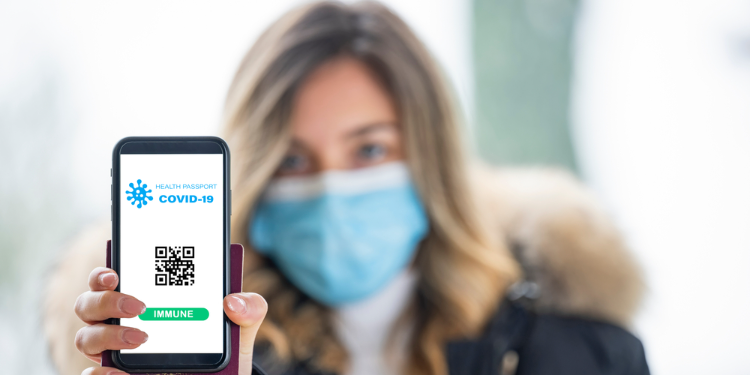
Some countries have already implemented requirements for vaccination passports or proof of vaccination from travellers, and some others are going even further by requesting health passports to attend regular day-to-day activities. The health passport requirements may encourage more people to get vaccinated, but not everyone is happy with such restrictions.
Vaccine passports are not an entirely new concept, with the World Health Organization (WHO)'s Yellow Card, a record of vaccinations, being around for decades. More recently, vaccine passports took the limelight following the vaccination requirements against the COVID-19 virus. While there is no uniform vaccine passport for COVID-19 yet, there are different passport systems such as the EU Digital COVID Certificate by the European Union and the International Air Transport Association (IATA)'s travel pass.
Domestic health passport requirements
Some countries are going a step further and implementing even stricter measures with domestic health passport requirements. For example, The Connexion reported the new rules in France that expect visitors to show the health pass to enter cultural venues such as cinemas, concerts, and theme parks with over 50 people from July 21, 2021. The report also mentioned the stricter rules that are to come into effect from early August 2021, where the health pass will be required to enter even places such as cafés and gyms. People of France are divided over the matter, with some strongly opposing the requirements with protests.
France isn't the only country with domestic vaccine passport requirements. France 24 highlighted the restrictions of several other European countries, including Denmark, with their health pass called the “Coronapas” that allows people to attend everyday places like hair salons or restaurants. The report noted a similar system in Austria and mentioned other European countries with health pass requirements that don't apply country-wide including Germany and Portugal.
Moni De Alwis, a French citizen living in Portugal, says, “I am retired and live here with my husband. We are fully vaccinated and have downloaded our EU Digital COVID Certificates, and most of our friends have done the same. Life is returning to a type of normal, even though our municipality recently slipped into the high-risk category. We can meet up to six friends, eat out, go to the beach, etc., within the guidelines. We feel we've lost a year and a half of our precious lives to COVID-19. We sincerely hope people will get vaccinated not just for themselves but for the protection of everyone else, so we can all return to a normal life again”.
Similarly, the UK has its “NHS Covid Pass”, which isn't a mandatory requirement to enter venues yet. There will also be other benefits of having the pass. For example, BBC reported that this pass or an equivalent from elsewhere in the UK will remove quarantine requirements for “fully vaccinated adults” returning from “most amber-list countries”. The self-isolation requirements, however, exist when returning from France. The report also mentioned the soon-to-be-removed self-isolation requirements for fully vaccinated adults in Wales and “fully vaccinated adults and under-18s in England” when a close contact contracts the virus.
While many countries are proceeding with vaccine passport systems, there is also resistance against such measurements from their citizens and residents. Many don't trust the vaccines or don't wish to be almost forced to get vaccinated. But, on the other hand, many believe it's important to get vaccinated for the safety of themselves and others.
How vaccination requirements affect expat life
There is no uniform global vaccine passport system yet, which especially complicates travel. For example, not all WHO-approved vaccines are accepted by every country. Unfortunately, not everyone gets to choose their vaccines and must simply take what is available. Others who have received different vaccines for the two doses are also concerned about travel.
Expats living in countries that have implemented certain rules may have to adjust to how things are done since the vaccine passports are already becoming a part of life in some geographies.
Rachael Matthews, currently living in Germany, says “Germany chose to make pharmacies responsible for handing out the electronic passports. There were a few teething problems at first, but by the time we were eligible to get ours, it took about two minutes. Restrictions have relaxed here somewhat since we became eligible for the passport, so I have rarely used mine. I did, however, use it when I got to Paris. Health officials were waiting at the train station to check the status of all incoming passengers. All I had to do was show the document I got from the pharmacy and my ID card. The official checked that I had had my second vaccination, that more than 15 days had passed since then and that the names on both documents were the same. If you are travelling with a child, check what you need to do for them. Younger children can travel with a vaccinated parent without having to be tested. However, the age varies in each country.”
Expats should keep an eye on the rules in their host country and any countries they wish to travel to, including their home countries, while we wait to see the future of vaccination passports.



















